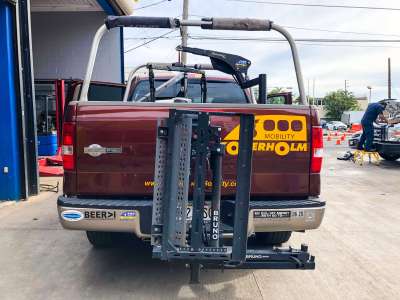How to Choose the Right Elevator Parts Manufacturer for Your Business
Choosing the right Elevator Parts Manufacturer is crucial for businesses in the elevator industry, given the increasing need for efficiency and safety in vertical transportation systems. According to a report by MarketsandMarkets, the global elevator market is projected to grow from $71.5 billion in 2020 to $106.4 billion by 2025, a clear indicator of the industry's expansion.
With this growth comes a heightened demand for high-quality, reliable elevator components that adhere to stringent safety and performance standards. Selecting the right manufacturer not only impacts the longevity and reliability of elevator systems but also affects operational downtime and maintenance costs. Therefore, understanding the key factors that contribute to the selection process is essential for business success and customer satisfaction in a competitive marketplace.
Identifying Key Criteria for Selecting Elevator Parts Manufacturers
When selecting an elevator parts manufacturer, several key criteria must be considered to ensure the best fit for your business needs. First, assess the manufacturer's experience and reputation within the industry. A well-established company with a proven track record of quality and reliability can provide peace of mind, as they are more likely to adhere to industry standards and regulations. Additionally, reading customer testimonials and seeking referrals can offer insight into their service and product performance.
Another crucial criterion is the range of products offered by the manufacturer. It's essential to choose a supplier that provides comprehensive solutions, including customized parts, to meet your specific requirements. This versatility not only allows for better integration within your existing systems but also helps in streamlining maintenance and repair processes. Moreover, consider the manufacturer's commitment to innovation and technology. A company that invests in research and development is likely to offer the latest advancements, enhancing the efficiency and safety of your elevator systems.
Evaluating Manufacturer Certifications and Compliance with Safety Standards
When selecting an elevator parts manufacturer, a critical factor to consider is their certifications and compliance with safety standards. According to the International Organization for Standardization (ISO), adhering to the ISO 9001 quality management standard can significantly enhance product reliability and customer satisfaction. In the elevator industry, manufacturers must also comply with the American Society of Mechanical Engineers (ASME) A17.1, which outlines safety codes for elevators and escalators. This compliance not only ensures that the parts meet stringent safety requirements but also demonstrates the manufacturer's commitment to quality.
Moreover, a report by the National Institute for Occupational Safety and Health (NIOSH) indicates that equipment failures contribute to a significant percentage of elevator-related accidents. Choosing a manufacturer with recognized certifications, such as those from Underwriters Laboratories (UL) or the European Committee for Standardization (CEN), can mitigate these risks. These certifications assure businesses that manufacturers have implemented rigorous testing and quality control processes, thereby enhancing the safety and performance of elevator systems. By prioritizing manufacturers who meet these safety standards, businesses can reduce liability risks and improve operational reliability.
Comparison of Elevator Parts Manufacturer Certifications
Assessing the Quality and Durability of Elevator Components
When selecting the right elevator parts manufacturer, assessing the quality and durability of elevator components is crucial. According to a 2022 report by the Elevator World Association, over 80% of elevator failures are linked to subpar components, highlighting the importance of investing in high-quality parts. Manufacturers that follow rigorous quality standards, such as ISO 9001 certification, are often more reliable and produce components that can withstand years of operational wear and tear. Components made from high-strength materials not only enhance the longevity of the elevators but also ensure the safety of passengers.
Furthermore, durability is not merely a function of the materials used but also of the design and engineering behind the components. A study from the International Association of Elevator Engineers found that well-engineered parts could significantly reduce maintenance costs, by up to 30%, compared to those that are less robust. Ensuring that your chosen manufacturer employs advanced manufacturing processes and innovation can lead to substantial long-term savings and a decreased likelihood of unexpected breakdowns. Investing time in assessing these factors will ultimately provide a solid foundation for a safer and more reliable elevator system.
Analyzing Manufacturer Reputation and Customer Reviews in the Industry
When selecting an elevator parts manufacturer, analyzing their reputation and customer reviews is essential. According to a recent study by Industry Analysts, 73% of elevator service companies prioritize reputation when choosing suppliers. This statistic underscores the importance of sourcing from manufacturers with a proven history of reliability and quality. Reviews should be taken into account not just from the manufacturer’s website, but also from independent platforms where customers can share their genuine experiences.
**Tips:** Look for reviews that mention product durability and post-purchase support. A manufacturer that consistently gets praise for these aspects likely values their customers and stands by their products.
Another pertinent factor is the manufacturers' compliance with industry standards. Data from the National Elevator Industry, Inc. (NEII) shows that less than 20% of companies operate without adhering to essential safety regulations. This fact highlights the risk of working with subpar manufacturers. Reviewing certifications and compliance records as part of your due diligence can significantly impact your business's safety and operational efficiency.
**Tips:** Always request a list of certifications and ensure the manufacturer is up to date with the latest regulatory requirements. Reliable manufacturers should have no hesitation in providing this information.
Understanding Lead Times and Delivery Capabilities of Elevator Part Suppliers
When selecting an elevator parts manufacturer, understanding their lead times and delivery capabilities is crucial for your business’s operational efficiency. According to industry experts, manufacturers that can provide shorter lead times not only enhance supply chain reliability but also significantly reduce downtime in projects. A report from the Next in Personalization 2021 states that businesses demonstrating a keen understanding of customer needs—like timely deliveries—see a heightened competitive edge that results in quicker revenue growth.
Recent developments in the elevator manufacturing sector highlight the growing importance of localization and advanced manufacturing techniques. For instance, the expansion of a factory in Bengaluru is a testament to how manufacturers are investing in state-of-the-art technology to streamline production processes, which can positively affect lead times. Additionally, startups in regions like Pune are reconsidering traditional models to boost efficiency and cut delays, thereby ensuring that they meet market demands more effectively. With a focus on smart manufacturing and localized production, companies can offer enhanced delivery capabilities, ultimately benefiting businesses that rely on these parts.




